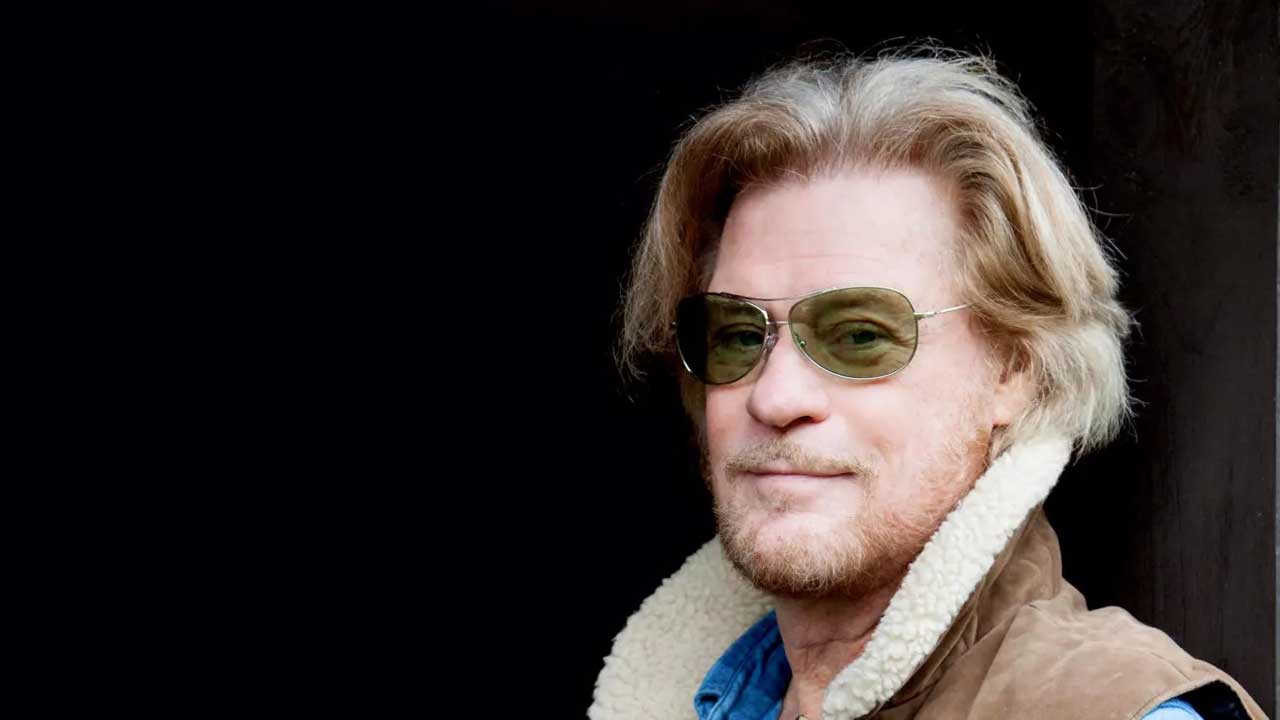During a glittering run that began back in 1970 and ended acrimoniously last year, based on chart positions and records sold Daryl Hall and John Oates became the most successful duo in rock history, eclipsing the achievements of Simon & Garfunkel, The Carpenters and the Everly Brothers, with hits including Maneater, I Can’t Go For That (No Can Do) and Kiss On My List.
Now, following the break-up with Oates (the specifics of which were ‘off limits’ in our interview), Hall returns to the UK for a fived-date solo tour, with US shows in July and October.

Now that you’re up on the stage alone, do the fans react to the show in a different way?
It [the show] is a whole other thing… It’s even better [laughs]. That’s the best way I can express it, talking about the vibe. There’s a more personal type of love [between artist and audience]. Everybody tells me that it’s a happier experience.
When are the times that you miss John?
There isn’t a time. There never was [laughs].
But you were together for so long.
No, no, no. We were business partners. We started out together as kids, but that sort of… morphed very, very early on.
Hall & Oates have sold more albums than any other duo in music history. What was the magic that you had?
It didn’t have anything to do with magic, it had to do with the songs. That’s the truth of it.
On this upcoming tour will you be doing a lot of material from last year’s solo album, D?
Yeah, I’ll be doing a few of those as it’s an album that I’m really proud of.
But you still play the hits, obviously.
Absolutely. There will be Daryl songs and Hall & Oates songs, a mix of everything. There are certain songs that I couldn’t get off the stage without playing. If I don’t play Sara Smile then somebody’s gonna get mad. The problem I have – and it’s a good problem – is that there are so many of those songs, but I can’t play them all.
Does solo artist status open up a whole new world of possibilities? Is it liberating to simply ‘be you’?
Even when we were a duo, we never operated as a duo. I was the frontman. It was more like Mick [Jagger] and Keith [Richards]. He [Oates] would be back there and I’d be doing everything up at the front. I was more the focal point of everything, and of course that hasn’t really changed. It’s been a seamless transition.
It’s odd to think that although you lived in London for a while, this tour will include your first appearance at the Royal Albert Hall.
I know. That’s a real surprise because I’ve played just about every other venue in town. I’ve visited the place many times, but I’m really excited to be playing at the Royal Albert Hall at last.
Do you get nervous?
After all this time, no. I’ve played lots of famous venues around the world. I’ve played Carnegie Hall [in New York], and it’s a similar kind of experience.
The special guest on the tour, Glenn Tilbrook, recently appeared on your long-running podcast Live From Daryl’s House. As he’s also a singer from a revered duo, Squeeze, did you find you had a lot in common?
Glenn and I both write music that’s complex music that sounds simple. It takes you some place, and yet it doesn’t sound like it’s trying too hard. A song that I wrote, Private Eyes [a US No.1 in 1981], is the same kind of thing as Pulling Mussels (From The Shell) [a Squeeze hit released the previous year].
Live From Daryl’s House is a really interesting podcast. It brings your guests to your personal living space, you play songs together, shoot the breeze about music and even cook food.
Thanks. It’s possibly my favourite thing I’ve ever done. We present the artists as real people, which is very unique to see.
Of all the guests you’ve had, which one of them was the most intimidating?
One of my early ones was Smokey Robinson. He was my childhood idol; I tried to sing like Smokey when I was fourteen years old, and I got to know him back in those days. So I called him up. Back then I lived in a relatively remote place outside of New York City, and there he was, sitting at my kitchen table.
Your achievements sink the myth that white guys can’t sing soul music.
Our success was the alarm that woke the world up to the falsehood of that statement. Soul music comes from the heart and your experiences, it has nothing whatsoever to do with ethnicity.
Is there a secret to writing a great song, and more importantly keeping the process going?
There’s no great secret. It comes from within. You just have to believe in what you are doing. Write the song, fall in love with it and, above all, believe in it. That’s the bottom line.
Are there any circumstances under which you might work with John Oates again?
None that I can think of.
The UK tour kicks off in Glasgow on May 17. Tickets are on sale now. Hall and Tilbrook also tour the US in October.



